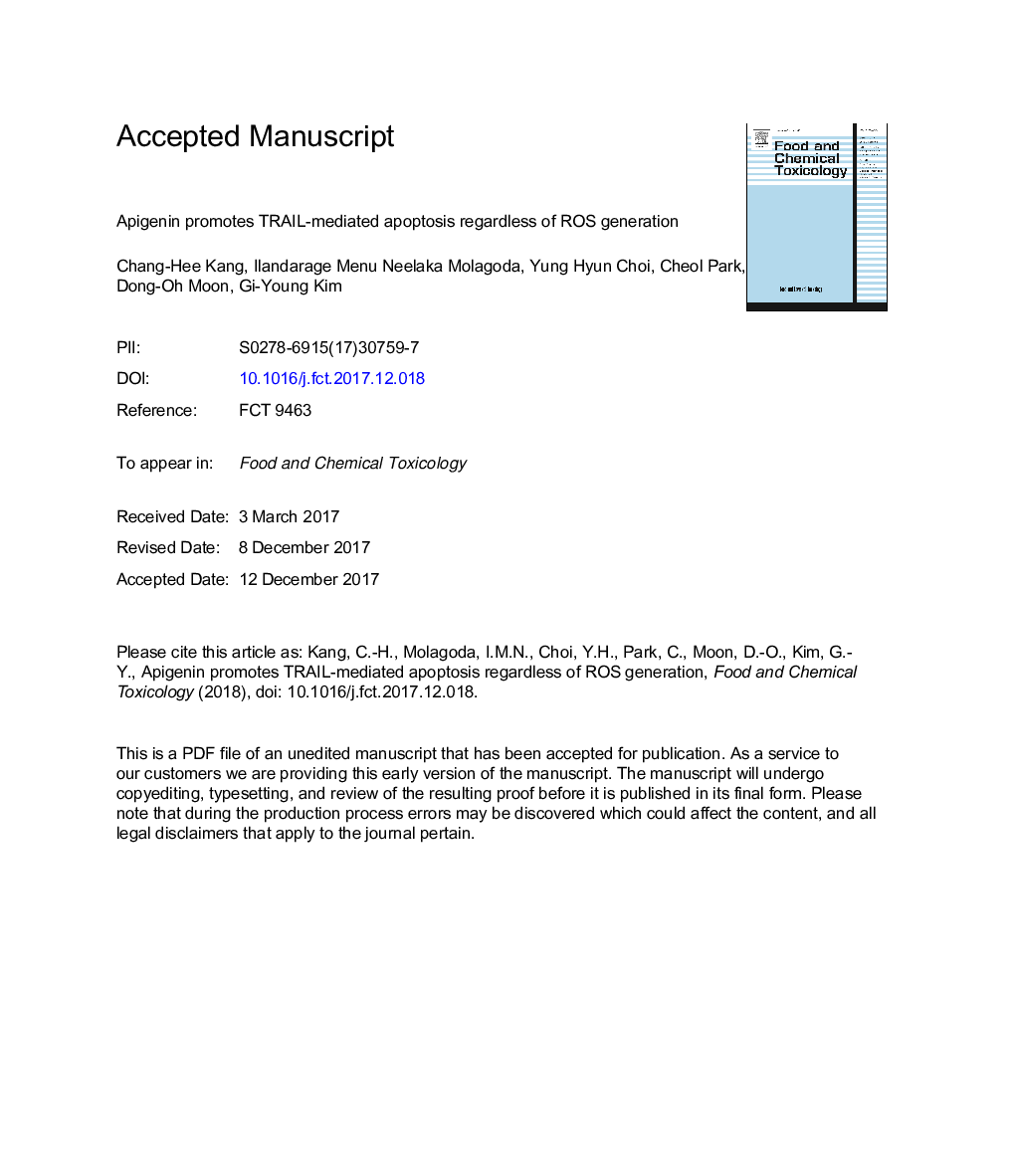| Article ID | Journal | Published Year | Pages | File Type |
|---|---|---|---|---|
| 8548685 | Food and Chemical Toxicology | 2018 | 32 Pages |
Abstract
Apigenin is a bioactive flavone in several herbs including parsley, thyme, and peppermint. Apigenin possesses anti-cancer and anti-inflammatory properties; however, whether apigenin enhances TRAIL-mediated apoptosis in cancer cells is unknown. In the current study, we found that apigenin enhanced TRAIL-induced apoptosis by promoting caspase activation and death receptor 5 (DR5) expression and a chimeric antibody against DR5 completely blocked the apoptosis. Apigenin also upregulated reactive oxygen species (ROS) generation; however, intriguingly, ROS inhibitors, glutathione (GSH) or N-acetyl-l-cysteine (NAC), moderately increased apigenin/TRAIL-induced apoptosis. Additional results showed that an autophagy inducer, rapamycin, enhanced apigenin/TRAIL-mediated apoptosis by a slight increase of ROS generation. Accordingly, NAC and GSH rather decreased apigenin-induced autophagy formation, suggesting that apigenin-induced ROS generation increased autophagy formation. However, autophagy inhibitors, bafilomycin (BAF) and 3-methyladenine (3-MA), showed different result in apigenin/TRAIL-mediated apoptosis without ROS generation. 3-MA upregulated the apoptosis but remained ROS levels; however, no changes on apoptosis and ROS generation were observed by BAF treatment. Taken together, these findings reveal that apigenin enhances TRAIL-induced apoptosis by activating apoptotic caspases by upregulating DR5 expression regardless of ROS generation, which may be a promising strategy for an adjuvant of TRAIL.
Keywords
Related Topics
Life Sciences
Agricultural and Biological Sciences
Food Science
Authors
Chang-Hee Kang, Ilandarage Menu Neelaka Molagoda, Yung Hyun Choi, Cheol Park, Dong-Oh Moon, Gi-Young Kim,
